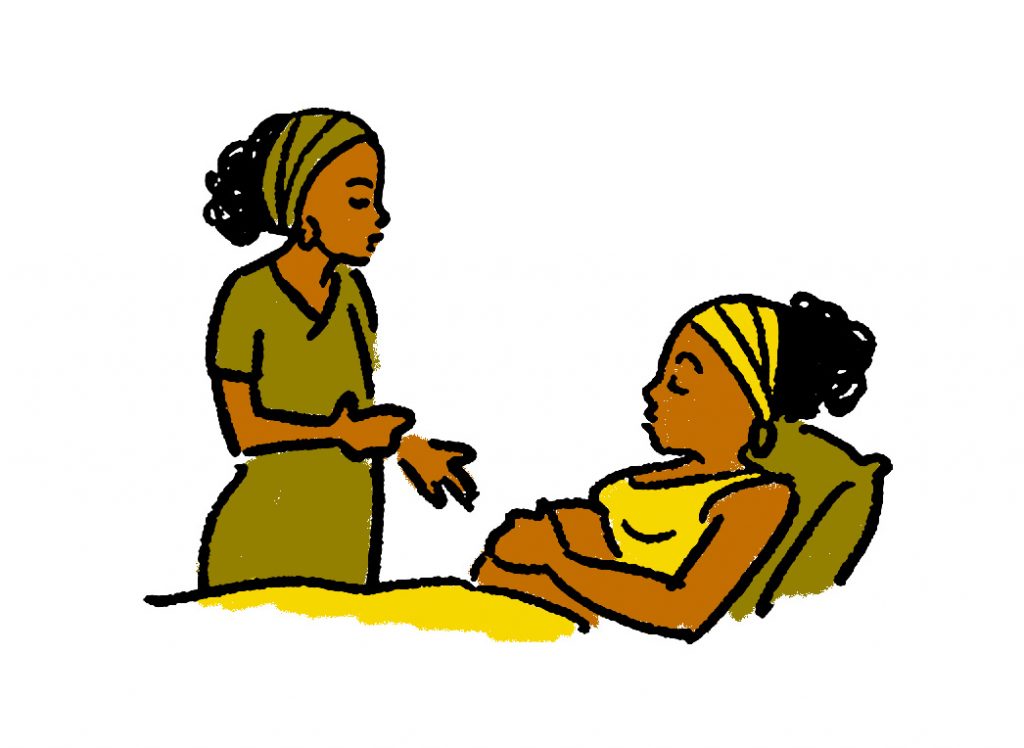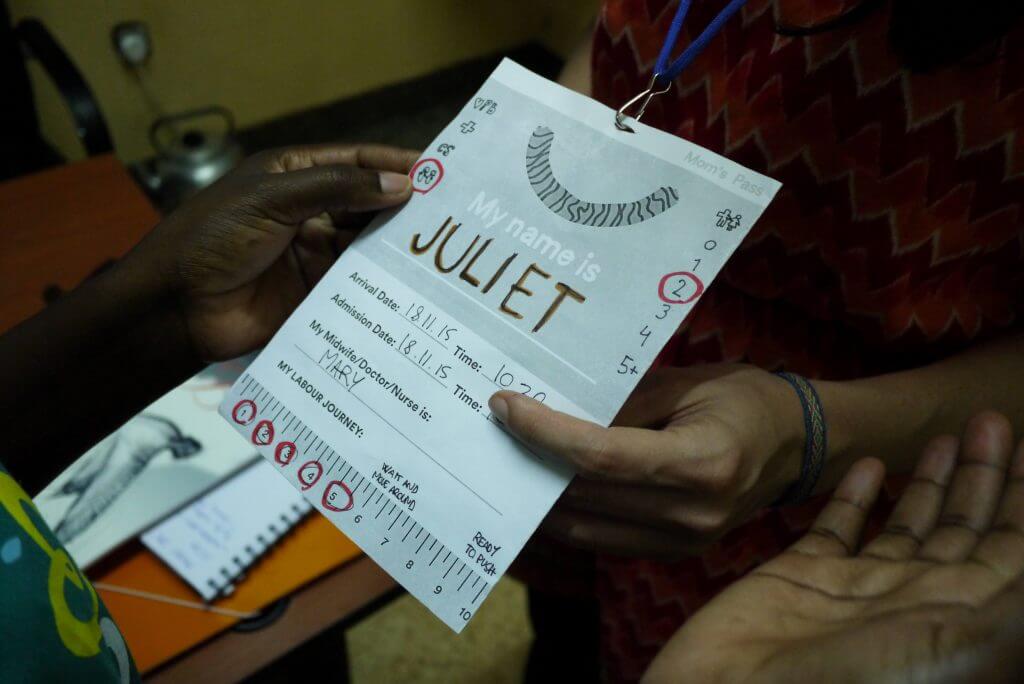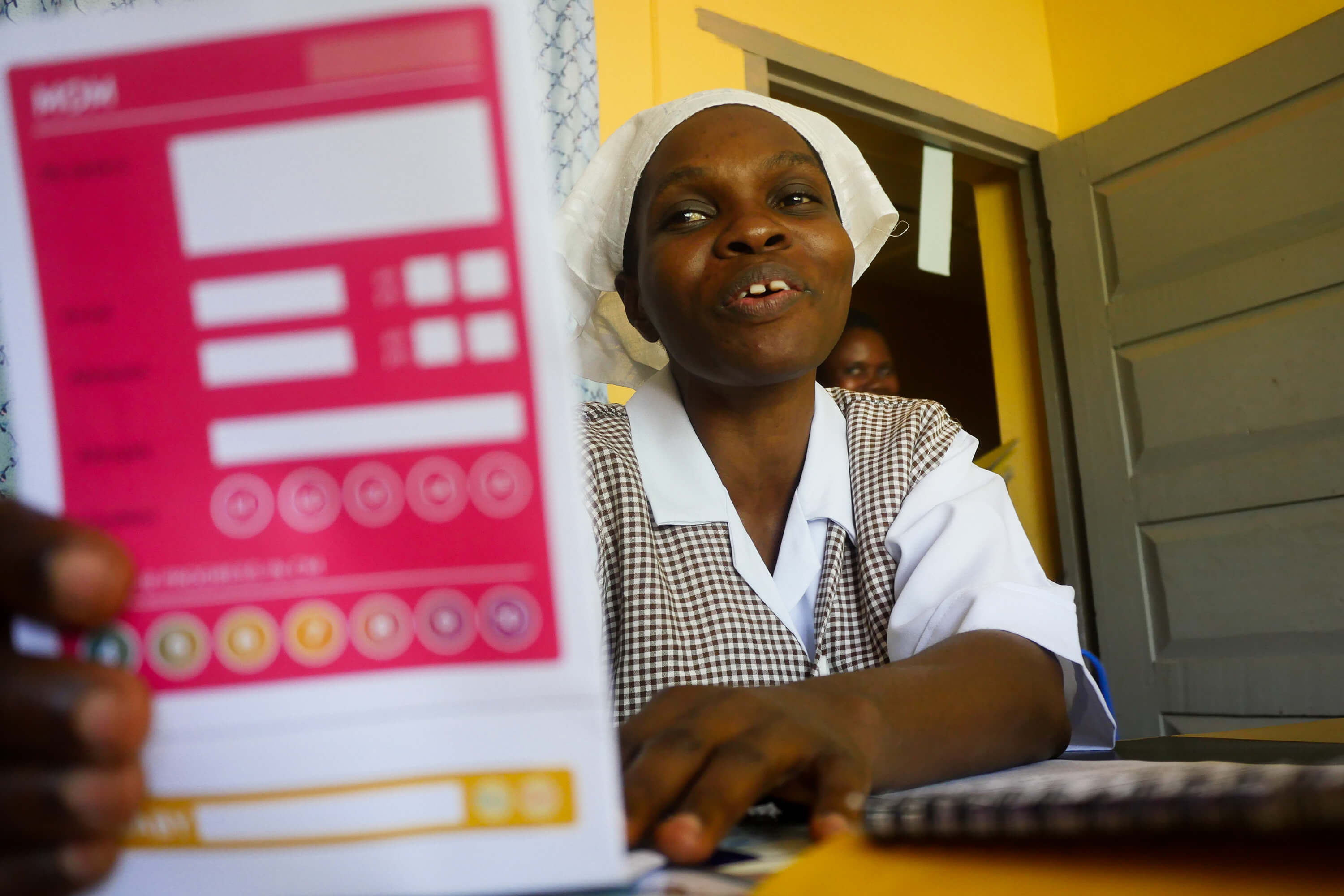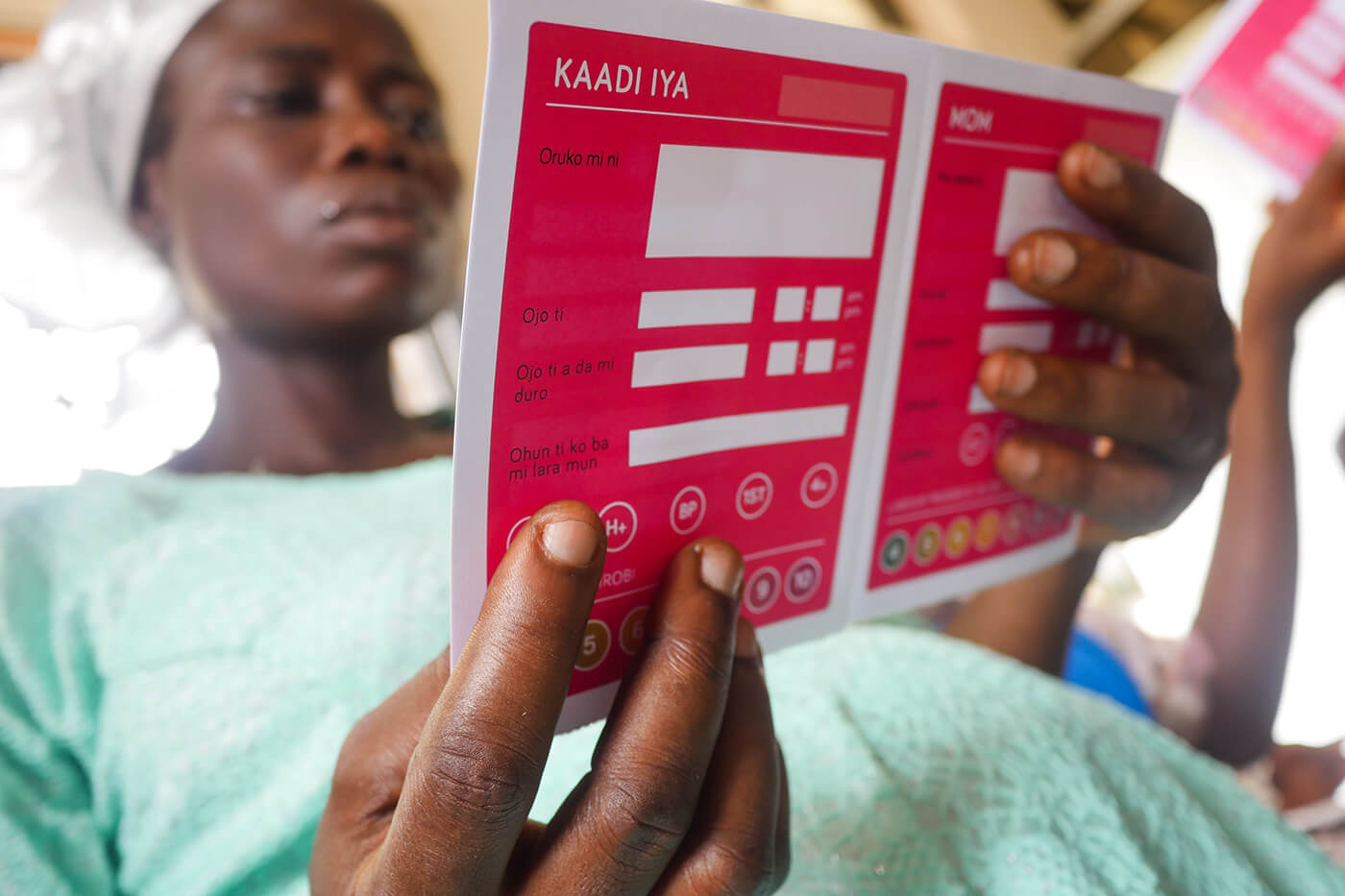BOLD: Better Outcomes in Labour Difficulty
Better Outcomes in Labour Difficulty (BOLD) was a multi-year maternal health research and design project in collaboration with the WHO’s Reproductive Health Research department. In this project, Scope designed and tested tools to improve the demand for a better quality of care in facilities and to enhance the understanding of pregnancy and childbirth in communities.
Labour difficulties result in deaths and long-term disabilities for thousands of mothers and newborn babies every year, particularly in historically marginalised and underserved communities. As a part of BOLD, we designed a set of tools to improve the quality of care provided to women and their families by strengthening the linkage between communities and facilities, called the Passport to Safer Birth (PSB).
The BOLD initiative was launched by Scope and the World Health Organisation Department of Reproductive Health and Research (RHR) in collaboration with the Department of Maternal, Newborn, Child and Adolescent Health. Local partners were the University of Ibadan in Nigeria and Makerere University in Uganda.
Scope led the service design work for the Passport to Safer Birth and applied design research, co-design, and prototyping in participatory design. The three tool prototypes developed aim to support health workers in providing appropriate care during childbirth and to increase demand for respectful, quality care among communities in low-resource settings.
A human-centered design process
The project applied a human-centred design process, where the developed paper-based prototypes have been explored, evaluated, and validated in a participatory process involving women, men, and community leaders as well as health practitioners and maternal health experts. Prior to the co-design work, design research was conducted to gain a broad understanding of pregnancy and delivery-related experiences in both rural and urban areas of Nigeria and Uganda.
The insights gained through design-driven, in-depth interviews, focus group discussions, and observations were analysed and synthesised into a prioritised collection of main themes. Based on the design research insights, we then developed a set of design principles that were reflected in the prototypes.
Outcomes: Passport to Safer Birth
The design deliverables of this project included a set of three different tools to improve the quality of care provided to women and their families.
1) the Pregnancy Assistant, to improve the pregnant couple’s understanding of pregnancy and delivery creating better communication and increased birth preparedness for the expectant woman and her companion
2) the Labour Mediator, a paper-based tool to provide health and medical information and offer emotional support during the delivery process. This tool aims to enhance the quality of communication between the care provider and client.
3) the Expectation Manager, a tool to visualise the roles and responsibilities of the birth companion and the extended family in a childbirth situation, simultaneously creating demand for quality care as well as increasing family members’ sense of control during the delivery process.
- Read a peer-reviewed article on BOLD in BMC Reproductive Health co-authored by Scope.
- Read a peer-reviewed article on the development of Passport for Safer Births in International Journal of Gynaecology & Obstetrics, co-authored by Scope.




